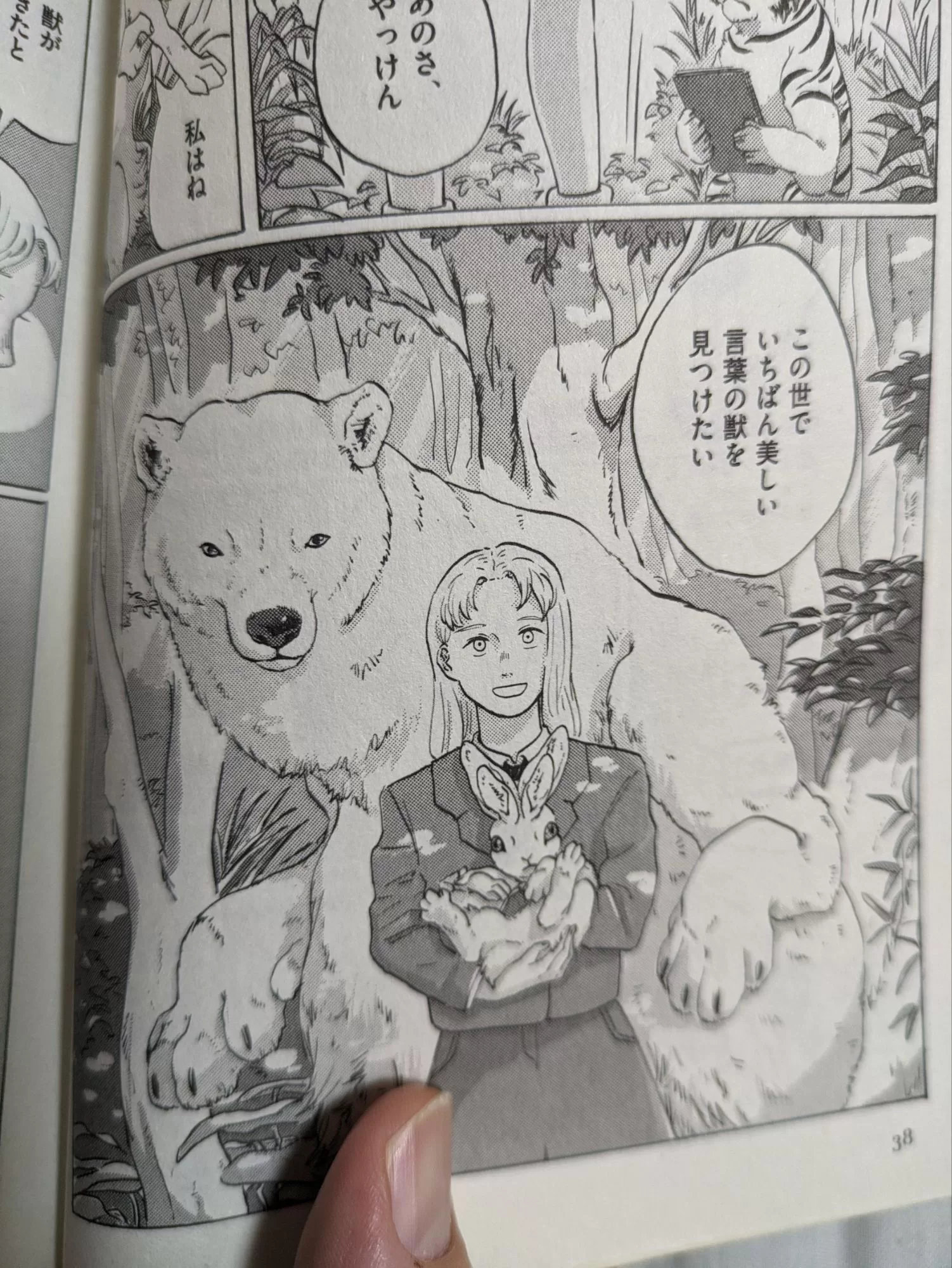言葉の獣
This manga adopts a cognitive psychological approach with the theme of “mutual understanding of words.”
The protagonist is a high school girl going through a sensitive period. She spends her days feeling a sense of discomfort with the words others say to her. This could be considered a universal experience for anyone who has gone through adolescence.
In this scenario, the protagonist, upon hearing the word “ganbare,” reflects, “There is the word ‘ganbare’ which means encouragement, but sometimes, even though it’s supposed to be a positive word, it can sound cruel.” This introspection captures a critical theme of the manga, where the protagonist is sensitive to the nuances and underlying meanings of words, a common experience during adolescence. The story explores the complexity of language and communication, particularly how the same word can carry different connotations and emotional weight for different people.
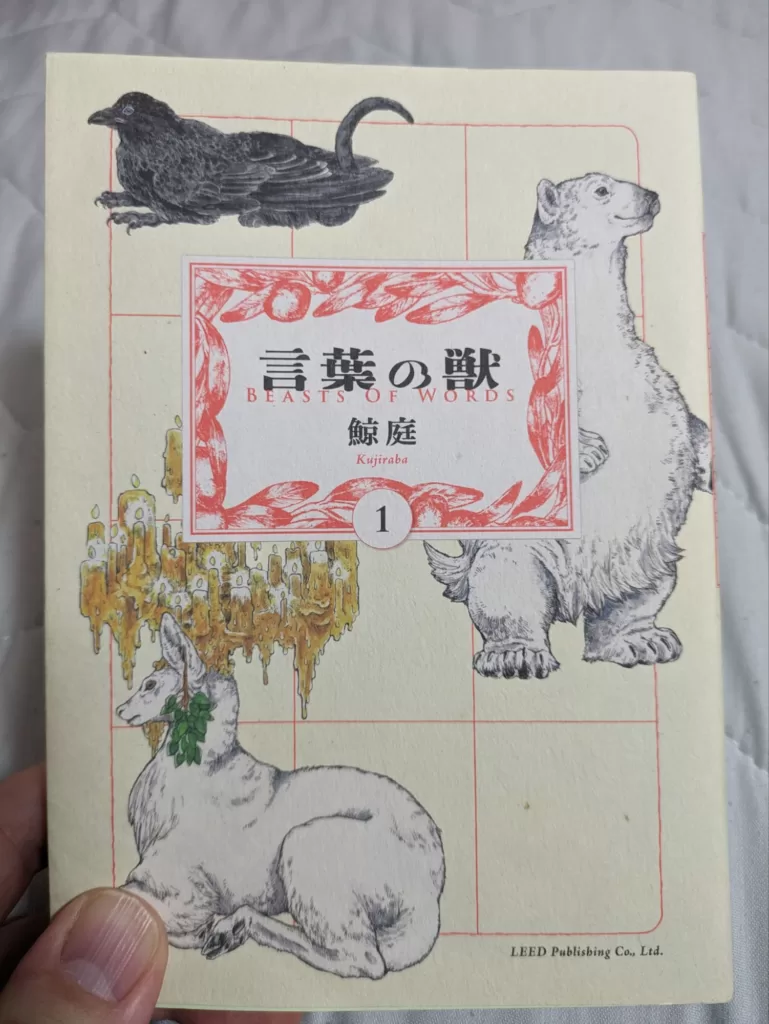
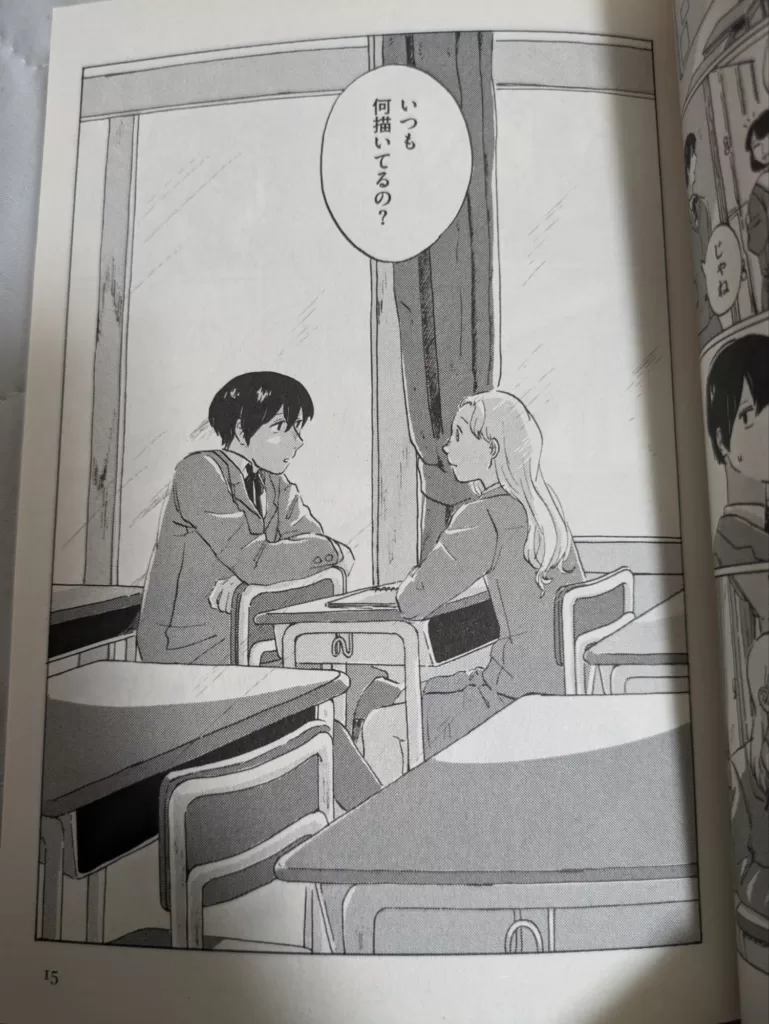
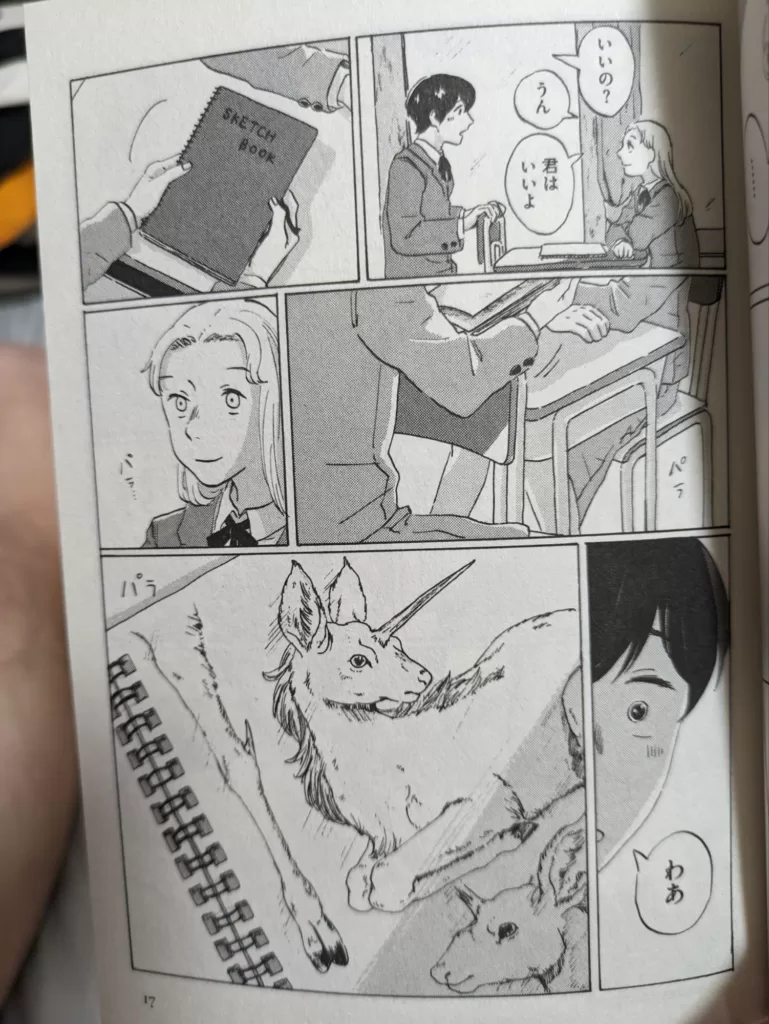
One day, she meets a classmate who has synesthesia, the ability to “see words.” When the protagonist says the word “beautiful,” this mysterious classmate begins to sketch while staring into space.
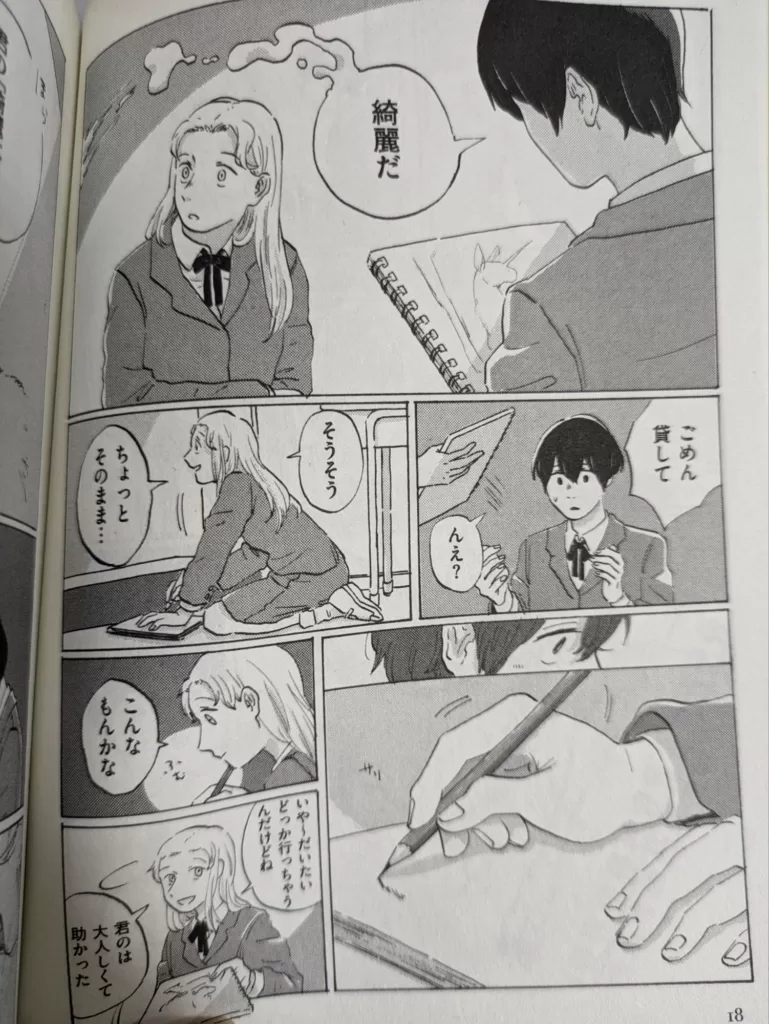
After finishing the drawing, the classmate explains, “This sketch represents the shape of the word ‘beautiful’ as you perceive it.”
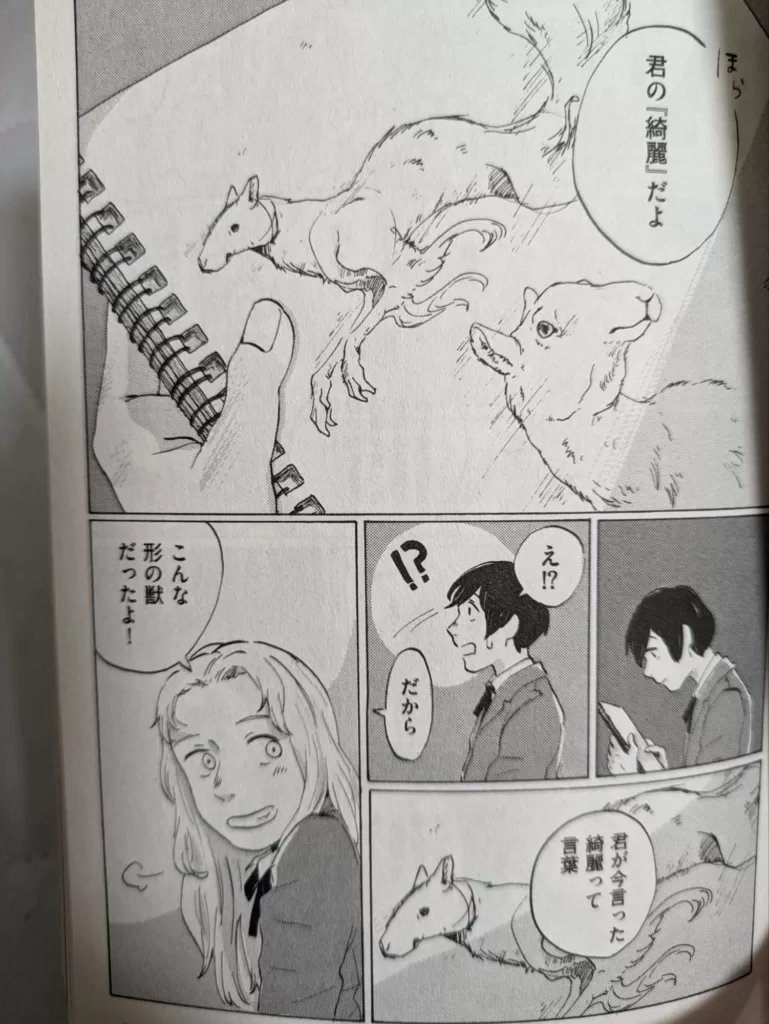
“I can understand the true meaning behind the words others say by seeing the shapes of beasts born from those words.”
“What do you think words are?”
“I have never had such a ‘question.’ I have always been able to see the shapes of words.”
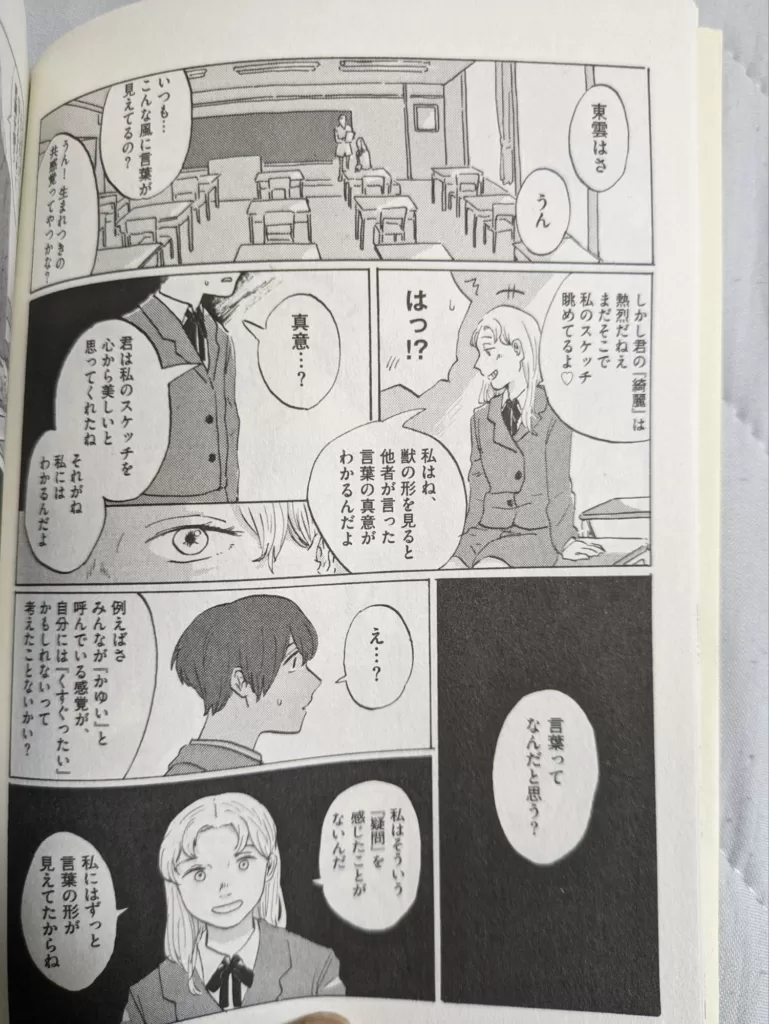
“Humans use words to convey their feelings more accurately. But this is just a way of cramming one’s own unique senses and meanings into words that have been unconsciously ingrained. I can understand the sensations and meanings that someone tried to express with their words.”
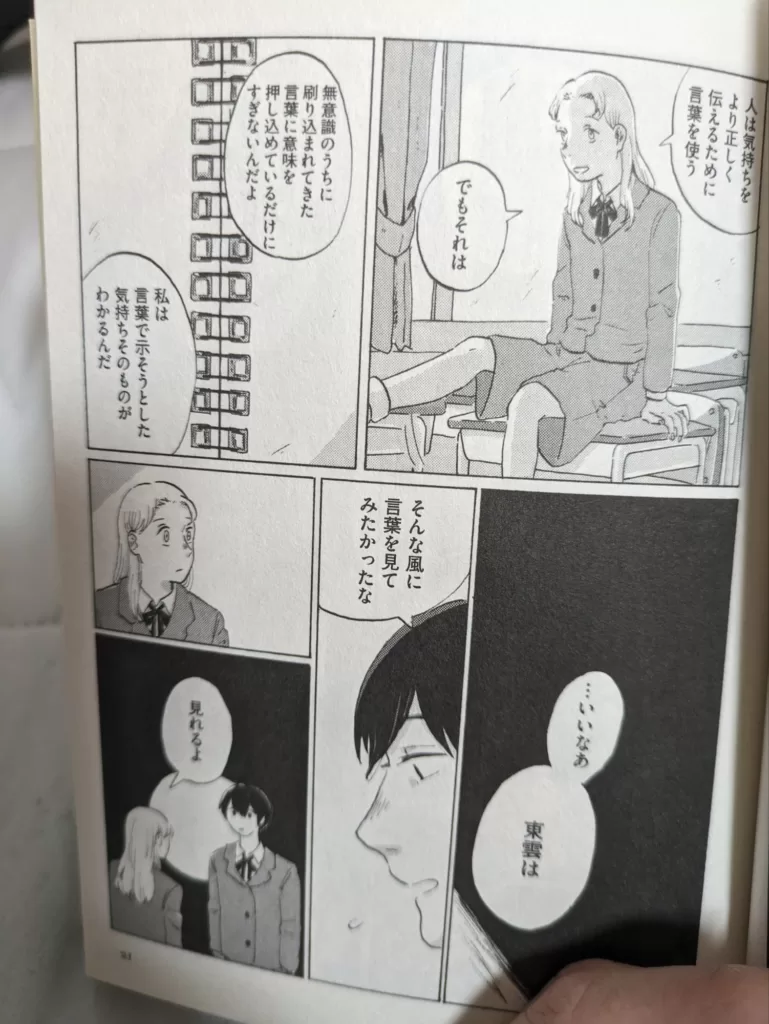
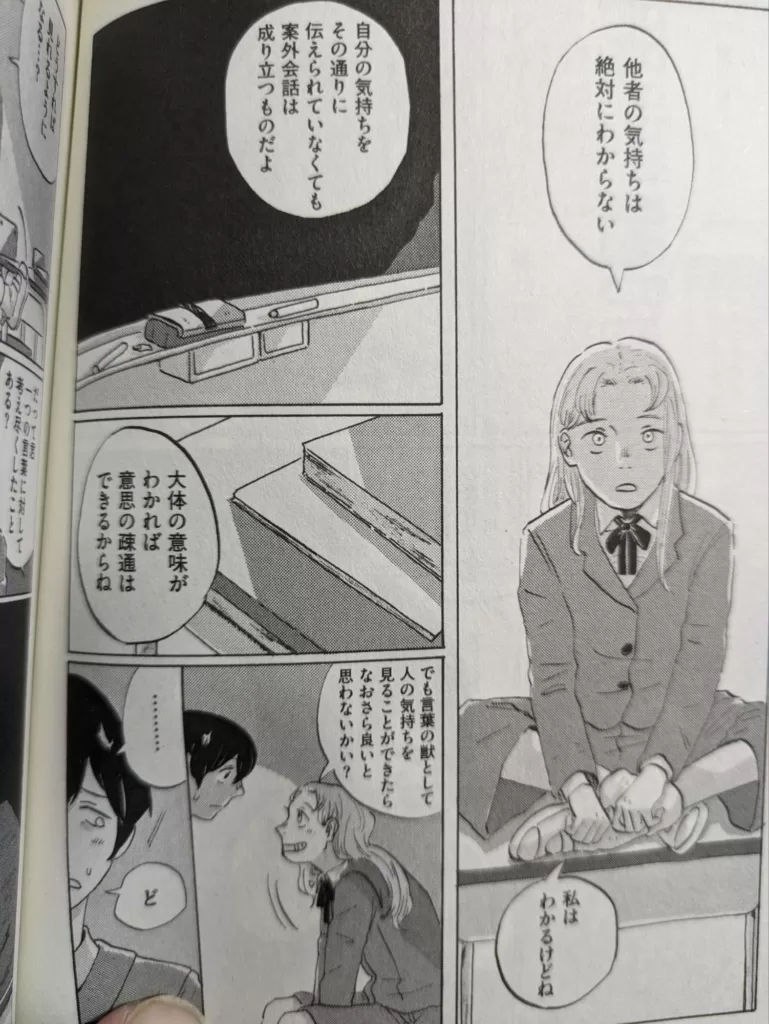
“The true meaning of the ‘ganbare’ you received is ‘I can’t help you.'”
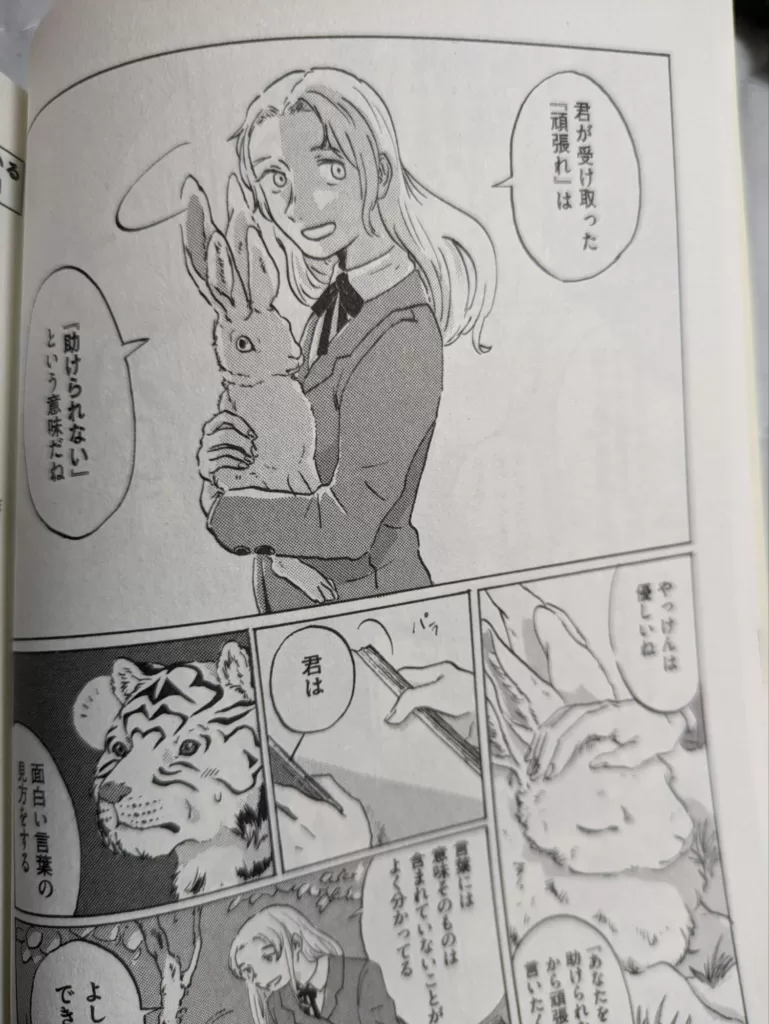
The mysterious classmate says, “I want to find the most beautiful word beast in the world.”
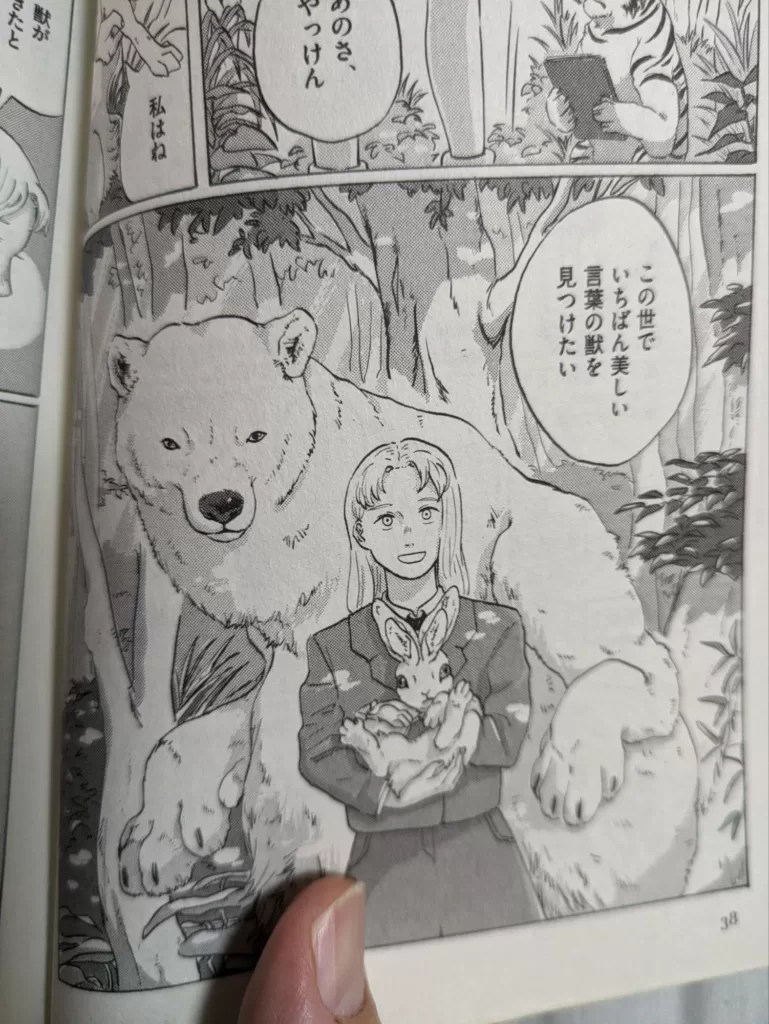
At the end of the story, there is a summary, and the author provides explanations and insights.
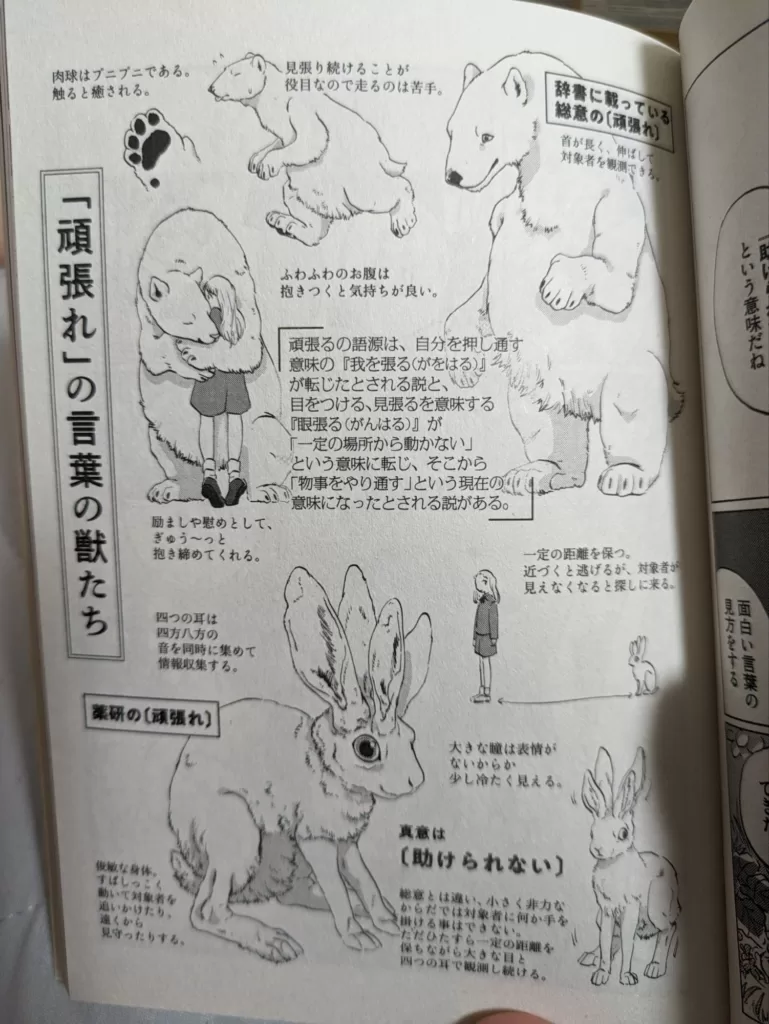
What kind of “word beasts” will the protagonist encounter, and what experiences will she go through? And can the mysterious classmate achieve her goal?
What shape will the “most beautiful word beast,” as depicted by the author, take?
「言葉の相互理解」をテーマに置いた
認知心理学的なアプローチの漫画です。
主人公は多感な時期の女子高校生です。
いつも 人に言われる言葉に違和感を感じる毎日を送っています。
主人公は「がんばれ」と言われて
「『がんばれ』という 応援を意味する言葉がありますが、前向きな言葉のはずなのに、残酷な言葉として聴こえる時があります。」と考えました。
これは思春期を経験した人であれば誰しもが通る普遍的な体験ではないでしょうか。
ある日、
「言葉が視える」という共感覚を持つクラスメイトと出逢います。
主人公が「綺麗だ」と言葉を発した瞬間、その不思議なクラスメイトは
虚空を見つめながらデッサンを始めます。
不思議なクラスメイトは、デッサンが終わると
「このデッサンは、あなたが認識している『綺麗です』という言葉の姿です。」
と言いながら描いた絵を見せてくれます。
「私は、言葉から生まれた獣の形を見ると、他者が言ったその言葉の真意が理解できるのです」
「言葉ってなんだと思う?」
「私はそういう『疑問』を感じたことがありません。私はずっと 言葉の形 が見えていたからです。」
「人間は気持ちをより正しく伝えるために言葉を使います。でもそれは、無意識のうちに刷り込まれてきた言葉に対して自分独自の感覚、意味を押し込めているだけに過ぎないのです。私は言葉で示そうとした感覚、意味そのものが理解できます」
「あなたが受けっとった『がんばれ』という言葉の真意は『私はあなたを助けられない』という意味です。」
不思議なクラスメイトは言います。
「私は、この世で一番美しい言葉の獣を見つけたい」
この物語は
どのような「言葉の獣」と出会い、主人公はどのような体験をして行くのでしょうか。
そして、不思議なクラスメイトは 自分の目的を達成することができるのでしょうか。
作者が描く「言葉の獣」は、「一番美しい言葉の獣」は一体どのような姿になるのでしょうか。
物語の終わりには まとめが 記載されており、作者による解説が参照できます。
